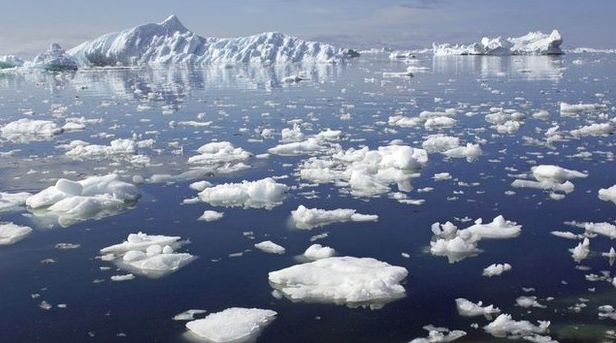
According to a new report issued by the United Nations Environment Program, the Arctic is locked into extreme temperature increases because of greenhouse gasses already emitted and the heat already being stored in the ocean. The Report, entitled Global Linkages – A graphic look at the changing Arctic, explains that winter temperatures in the Arctic will still increase 4 to 5°C by 2100 compared to the late 20th century even in the best case scenario that we are able to end our emissions immediately. According to the Report:
- Even if Paris Agreement goals met, Arctic winter temperatures will increase 3-5°C by 2050 compared to 1986-2005 levels;
- Thawing permafrost could wake ‘sleeping giant’ of more greenhouse gases, potentially derailing global climate goals; and
- Ocean acidification and pollution also pose major threats to the Arctic ecosystem and natural resources.
This rapid thawing in the Arctic creates a downward spiral of melting — as the permafrost melts it releases carbon and methane trapped in the ice, and that results in even more melting. Currently, there are an estimated 1,672 billion metric tons of carbon trapped in the frozen ground that will over time be released. The problem of Arctic melting is obviously more acute for those who live in the region. Kimmo Tiilikainen, the Finnish minister of the environment, energy, and housing said, “The urgency to achieve the goals of the Paris Agreement is clearly manifested in the Arctic because it is one of the most vulnerable and rapidly changing regions in the world.”
Why This Matters: The Arctic is remote and the melting ice seems to many to open up important opportunities for development and shipping. But, given the ripple effects of the expected Arctic temperature rise that are now more clearly understood, we all should be concerned about this latest report’s conclusions. As one of the lead scientists said, “What happens in the Arctic does not stay in the Arctic,” said Joyce Msuya, UN Environment’s Acting Executive Director. “We have the science; now more urgent climate action is needed to steer away from tipping points that could be even worse for our planet than we first thought.”
To Go Deeper: You can read the full UNEP report here.
March 15, 2019 » Arctic, carbon, climate change, methane, permafrost, sea ice, thaw, UNEP


